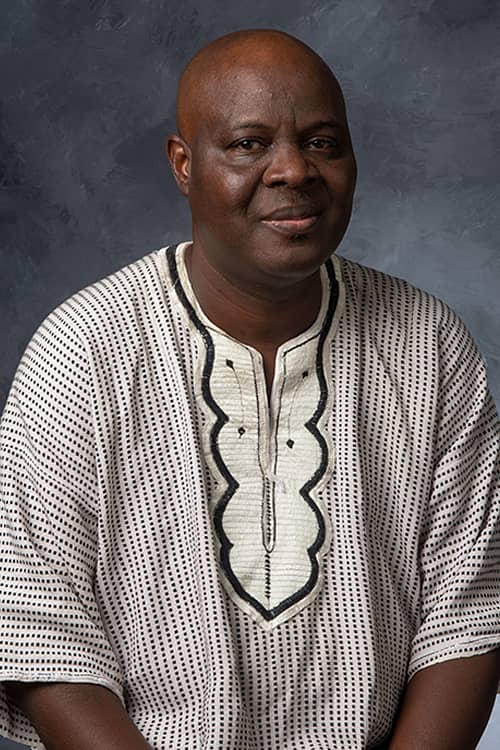
Roland Koku Gamia, Ph.D. student, French and Francophone World Studies
Explores early African feminism
“Koku is now working on a highly innovative project that promises to make a significant contribution to the field of Francophone Studies. His dissertation examines representations of women in the sub-Saharan African novel from the pre- and post-independence decades, that is, the 1950s and 1960s.” – Roxanna Curto, Associate Professor of French and Spanish
• Hometown: Kpalime, Togo
• Faculty mentor/advisor: Dr. Roxanna Curto
• What is your degree program and expected graduate date? I’m currently a Ph.D. candidate in French and Francophone World Studies. I’m working on my dissertation and expecting to graduate in Spring 2022.
• Please describe your research: My study examines the representation of women in Sub-Saharan African novels in French from the 1950s to 1960s in order to demonstrate the existence of an early feminism in the works of authors such as Ferdinand Oyono, Sembène Ousmane, Seydou Badian, Guillaume Oyônô Mbia and Ahmadou Kourouma. Scholarship on these novels has often emphasized the colonial issues presented in these texts, which frequently denounce both colonialism and the new ruling classes that emerged following independence. Due to the focus on these matters, readers have often overlooked the portrayal of women and questions of gender, including the refusal of many rebellious female characters to resign themselves to their condition and place in society, and a desire for self-liberation.
• In simple terms, why does this research matter? I hope that my work will offer a different point of view for reading and interpreting Sub-Saharan African novels of the pre- and post-independence period. This study calls into question the prevailing idea that feminism did not develop in Africa until the late 1970s, since these novels precede this later feminism. Moreover, this research shows that despite severe social restrictions, African women were not amorphous but combative.
• How soon after starting at the University of Iowa were you able to participate in research? I took the first few steps towards this research project during my very first semester as a master’s student at the University of Iowa. At the time, I realized, as a result of the courses that I was taking, that I had the ability to start working on this research.
• How has being involved in research made you more successful at the University of Iowa? Getting involved in this research has placed me on a broader path of developing my intellectual capacities and at the same time acquiring new ways of working. It gave me greater opportunities to further my critical thinking, diversify my knowledge and change the way I see the world.
• What are your career goals and/or plans after graduation? I hope that I will have the opportunity to share my work and knowledge with students and colleagues as faculty at an academic institution.
Banner location: Downtown—
